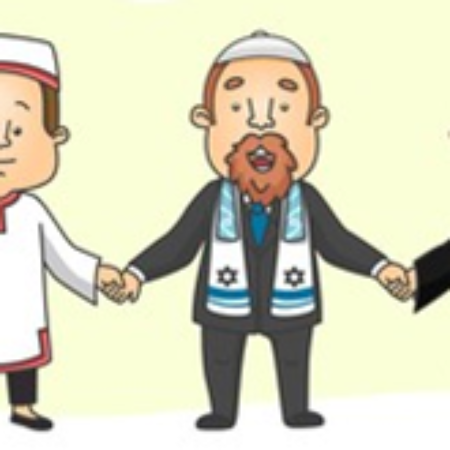This week, as I regularly do, I took services in rest homes. As I came into one of the rest homes, some residents already sat expectantly in the chairs in the room where the service is held, while others still drifted in. After greeting the people informally I began to set up for the service. The rest home activities coordinator helped some residents to their seats, but then asked others to leave the room again. She told one woman: “This is an Anglican service. Come on, you are a Catholic, you can’t be here.” The woman said: “But I want to be here.” The coordinator replied: “But you are a Catholic.” The woman actually got a bit angry: “I still want to be at this service. Just because I’m Catholic doesn’t mean I can’t be at the service.” The activities coordinator didn’t want to argue any longer: “You’re sure you really want to stay for the service?” The woman replied emphatically: “Yes, I want to be here.” As a result the activities coordinator left her in the room and we all had a wonderful service together. At the end the Catholic woman couldn’t thank me enough for the service.
I think it’s great that today we can share far more freely across denominational boundaries. I’m horrified by some of the stories I hear about the rigid denominational divisions in previous decades. One former soldier told me how he experienced this in the defence force. Apparently the troops were lined up for divine service. Then some officer would bellow: “Jews and Catholics leave now!” Apparently these were the only other groups recognised in the army apart from the Protestants. The Jews and Catholics would promptly step out of line and march to their own mass or Torah, or would while away the time while the Protestant padre took the service. Today we work more readily together with other Christian denominations and I don’t think that there is quite the level of mistrust.
There is more that unites us as Christians than divides us. That doesn’t mean that the divisions are meaningless. These are real divisions about theology and life. Some beliefs and practices are further from the truth than others. I also think that the Reformation had to happen and that it was overall a good thing. The notion that we should just be nice and all get along with each other, because it doesn’t matter, is not truthful nor ultimately loving. Faith and truth do matter, but we do need to get along with each other despite our differences, while continually working towards the truth and guiding others towards it.
In our time and age there is also a lot more division within denominations than between them. Somehow, those current divisions are often more about our response to the secular culture around us than about issues of theology. This means that we no longer can remain comfortable in the approach of our denomination, but are forced to reach out across denominations. In part that may be a good thing. After all we need to see ourselves as Christians first. I have certainly valued the companionship and writings of some Catholics, Orthodox and Mennonites more than those of some Anglicans. May we seek the unity of the Church universal, while also remaining steadfast and faithful.

